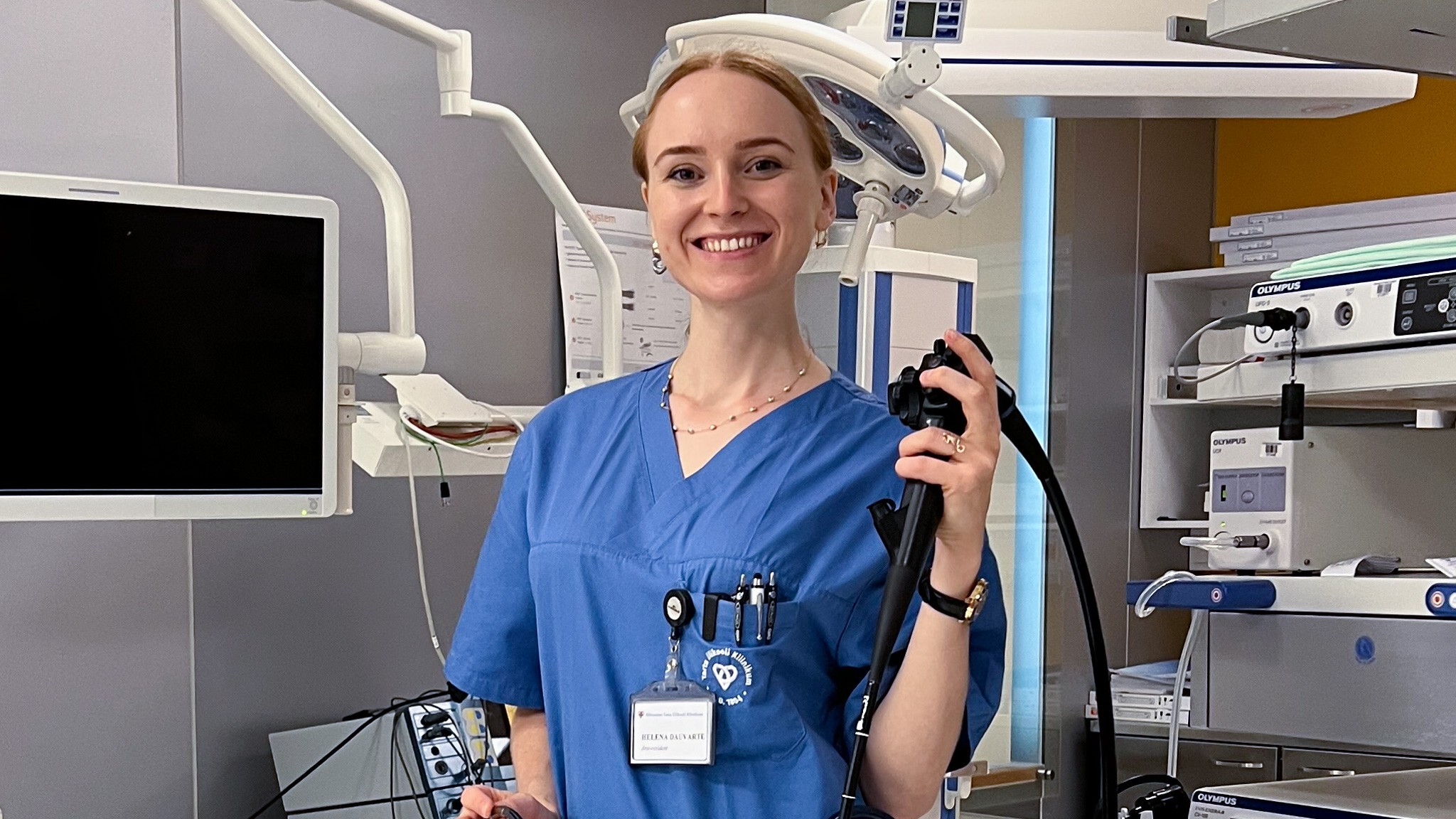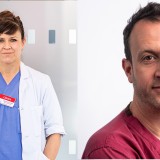
Could you tell us a bit about yourself, and why you chose gut microbiota as your main research topic?
My name is Helena Dauvarte and I am in my 4th year of medical residency in gastroenterology. I am originally from Latvia but currently I am studying and working in Estonia.
During my medical studies at university, research was one of my passions. As much as possible I dedicated my time to research. In my third year there was an opportunity to participate in a research project of my friend and colleague. The topic covered inflammatory bowel diseases (IBD) and gut microbiota. While working on the research I got more and more interested in gut microbiota. To my mind, microbiome is a very trendy topic in gastroenterology now. Thanks to research, this field is developing very rapidly and gives clinicians new perspectives and possibilities in treatment of gastrointestinal diseases.
Now, during medical residency, all my time is devoted to clinical practice and endoscopies which, unfortunately, leaves research secondary. I do, however, hope and plan on reintroducing research in my life more after graduating from residency.
What motivates you to develop in the profession?
Besides my interest in gastroenterology and endoscopy, I think colleagues are one of my greatest inspirations and motivation in my profession. During residency, I had the opportunity to work together with many great gastroenterologists and other specialists. Working in a team with specialists that are not only great at what they do but also have outstanding personalities motivates me to be more like them, it is like having many role models around me!
My patients play a huge role in motivating me in my profession. It is a gratifying feeling to see how therapy has improved the health of my patients. Knowing that my work is needed and appreciated, gives me the strength and motivation to do more.
Could you tell us where we as GI doctors could use the latest microbiome discoveries in practice, especially in managing IBD patients?
I think the answer to this question should include two aspects – gut microbiota and the use of probiotics and prebiotics.
Firstly, a “hot topic” in gut microbiota is fecal transplantation (FT) that many countries use as a treatment method in specific gut diseases. There is evidence that FT could help in patients with ulcerative colitis, however more research is needed. It is also a proven treatment method in vancomycin resistant Cl. difficile infection. Because this is a very expensive method, not all countries can afford to include it in an everyday practice. That is why I think more research and discoveries would help to develop this treatment method in other countries as well.
Secondly, the use of probiotics and prebiotics play a huge role in gastroenterology. It has been proven that probiotics can reduce antibiotic related diarrhea risk, can be used in ulcerative colitis patients and in irritable bowel disease patients. Even though there is evidence that probiotics and prebiotics have a positive effect on reducing risk of gut related infections and can be used as a supplement in treating some bowel diseases, the use of them is not yet included in guidelines, because more evidence is needed.
What advice you may give to beginners that wish to study gut microbiome?
I think in research (and in medicine in general) team work makes the dream work! It can help a lot if you find a good mentor or a supervisor that leads you and gives good advice.
Regarding specifically the gut microbiota, there are a lot of platforms that provide lectures, podcasts or articles about this topic. To my mind, one of the best platforms for learning and further reading are UEG Education, the UEG Library and the European Crohn’s and Colitis Organisation (ECCO).




Please log in with your myUEG account to post comments.